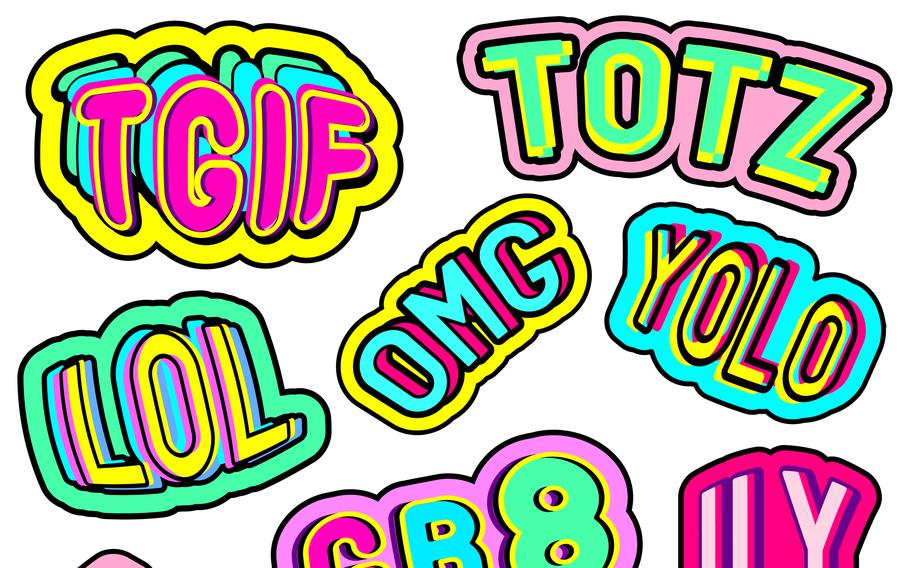
(iStock)
Read any parenting book today, and it will likely recommend that, “communication is key” in building a relationship with one’s teenagers. It’s great advice, but what if you and your teens don’t speak the same language?
Consider this: Your daughter walks into the kitchen, looks at your outfit and says, “Yo Mamma, you bussin,’ no cap. Slay Queen!” Should you feel insulted? You overhear your son say into his phone, “Dawg, shahti been livin’ rent-free in my head. Perioduh.” Should you be concerned?
I would’ve loved to have had an interpreter on retainer when my kids were teenagers, but instead, I bumbled through parenting by the seat of my double-digit-sized pants, being ridiculed by my offspring when I used old-timey phrases such as “For Criminy’s sake!” and “What in the H-E-double hockey sticks?” Now that my three children are in their 20s, they still make fun of me, but I’ve managed to learn a thing or two despite today’s parenting challenges.
Comparatively, child-rearing was a cake-walk for my parents, who gave my brother and me free rein to roam the neighborhood in cut-off jean shorts and tube socks while they smoked Pall Mall cigarettes and drank vodka gimlets. Other than awkward talks about the “birds and the bees” while referencing the Life Cycle Series for Young Adults, our parents lived on easy street.
With the only means of distance communication anchored to the wallpapered kitchen wall by a tangled spiral cord, and the nearest source of information located in the Encyclopedia Britannicas in the neighbor’s rumpus room, slang terms took much longer to stick than today. The slower pace of change gave our parents plenty of time to master the meaning of colloquialisms such as “Gag me with a spoon,” “Like, totally,” and “No big whoop.”
Like my parents, I didn’t grow up with the Internet, but unlike my parents, I’ve been forced to raise children during the Internet era, when social media and 24/7 online communication have fostered the rapid development of slang terminology.
Prior to the Internet, words such as “cloud,” “tablet,” “scroll,” “footprint,” “follow” and “fire” were used to tell the story of Moses’ trek to the burning bush. “Swipe,” “tag,” “pin,” “poke” and “troll” might have been used to report a street fight with a man living under a bridge. And “spam” was (and still is) a brand of strangely delicious yet visually revolting canned pork product.
However, in today’s technological world, a viral tweet could change our vocabulary in an instant. It’s almost impossible to keep up, but by learning a few Millennial and Gen Z terms, you’ll avoid becoming as obsolete as the phrase, “Zounds! Thine wench quoth pure tommyrot and ’tis but a blatherskite!”
As counterintuitive as it seems, words that mean “good” to today’s youth include “sick,” “dank,” “bad,” “hella cool,” “lit,” “dope,” “bussin,” “trill,” “savage” and “fire.” Likewise, “phat,” “thick,” “ride or die,” “fam,” “on fleek,” “snatched,” “represent” and the ultimate compliment, “G.O.A.T.” (Greatest of All Time), are terms with positive sentiments.
On the other hand, descriptors that imply bad character include “shady,” “poser,” “salty,” “bougie,” “thirsty,” “ghosting,” “diss,” “suss,” “extra,” “random,” “ratchet,” and “out of pocket.” Proceed with caution when overhearing confrontational expressions such as “don’t @ me,” “wig snatch,” “spill the tea,” “put on blast,” “talk to the hand,” “bruh, seriously,” “throwing shade,” and “bye, Felicia!”
Parents should “chill” when their children utter harmless words of positive affirmation such as “yaaaaas,” “bet,” “I’m down,” “no cap,” “slay, queen,” and “hundo p.” However, Mom and Dad may suspect “sussery” if their teens speak of “getting turnt” after the football game or “kickin’ it with bae” on Saturday night.
No matter what terms your children use — take it from me — it’s never a good idea for Mom to adopt her kids’ slang in an attempt to bond with them. Unless she wants her children to post an embarrassing recording of her on TikTok with the caption, “I’m dead!” which, I’ve learned the hard way, means, “My mom is hilarious!”
Read more at themeatandpotatoesoflife.com and in Lisa’s book, “The Meat and Potatoes of Life: My True Lit Com.” Email: meatandpotatoesoflife@gmail.com